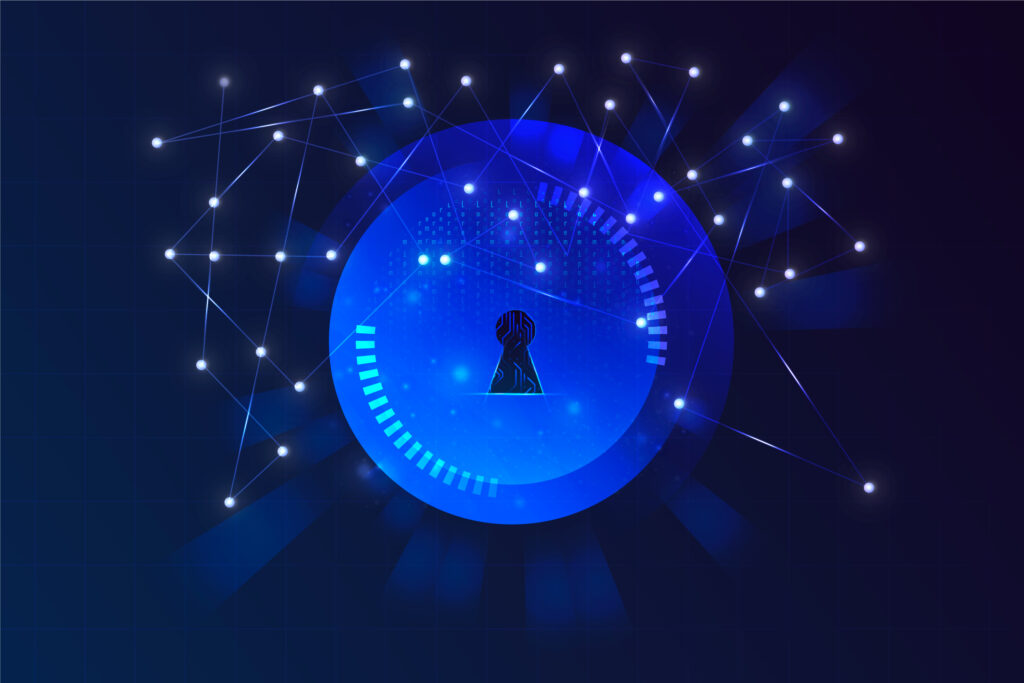In recent years, two technological advancements have captured the attention of industries globally: cybersecurity and blockchain. As Nigeria continues its digital transformation, these technologies have the potential to significantly influence the country’s economic landscape. Cybersecurity has become critical for both businesses and government institutions, while blockchain technology is gaining traction, particularly in sectors like finance. This article delves into the future of cybersecurity and blockchain in Nigeria and how these technologies can shape various industries.
Cybersecurity in Nigeria: A Growing Concern
Nigeria’s rapid digitization has led to an increase in cyber threats. As online transactions and e-commerce grow, Nigerian businesses are becoming more vulnerable to cyberattacks. According to the 2021 Global Cybersecurity Index (GCI), Nigeria ranks as the 7th most vulnerable country to cyberattacks in Africa, highlighting the need for stronger cybersecurity measures.
The Nigerian government has made strides toward improving cybersecurity. The National Information Technology Development Agency (NITDA) and the Cybercrime Act of 2015 have laid foundational efforts to combat cybercrime. However, there is still a long way to go to protect Nigerian businesses and government institutions from evolving threats.
Blockchain Technology in Nigeria: Emerging Use Cases
Blockchain technology is already making its mark in Nigeria, particularly in the financial sector. It facilitates cross-border payments, remittances, and provides financial services to the unbanked. The Central Bank of Nigeria has established a blockchain committee to explore its applications within the financial sector. Beyond finance, blockchain is also finding use cases in supply chain management and healthcare.
For instance, blockchain’s decentralized and tamper-proof nature makes it ideal for ensuring transparency and traceability in the supply chain. In healthcare, blockchain can help secure patient data and facilitate medical record sharing, improving healthcare services, especially in remote areas.
The Future of Cybersecurity and Blockchain in Nigeria
The intersection of cybersecurity and blockchain holds immense promise for Nigerian businesses. Here are some of the key opportunities where blockchain can revolutionize cybersecurity and enhance Nigeria’s digital landscape.
1. Enhanced Data Integrity and Security
Blockchain’s immutable ledger ensures that once data is recorded, it cannot be altered or deleted, providing a tamper-proof environment. This level of security is crucial for industries like finance, healthcare, and supply chain management, where sensitive data must remain secure.
Opportunity: Nigerian financial institutions can leverage blockchain to protect transaction records, ensuring transparency and reducing the risk of fraud.
2. Decentralized Identity Management
Blockchain enables decentralized identity management, allowing individuals to control their personal information and securely share data. This reduces the risk of centralized databases being compromised by cyberattacks.
Opportunity: Nigerian telecommunications and e-commerce businesses can adopt blockchain-based identity systems to protect customer data and reduce identity theft.
3. Smart Contracts for Secure Transactions
Smart contracts execute transactions automatically when predefined conditions are met, reducing the need for intermediaries and minimizing the risk of fraud.
Opportunity: Nigerian businesses in real estate, insurance, and legal sectors can utilize smart contracts to streamline transactions, reduce paperwork, and ensure the authenticity of agreements.
4. Improved Supply Chain Security
Blockchain’s transparency can prevent fraud and counterfeiting in supply chains, ensuring products are ethically sourced and their origins verifiable.
Opportunity: Nigerian manufacturers and logistics companies can implement blockchain to enhance product safety, particularly in agriculture and pharmaceuticals.
5. Decentralized Cloud Storage Solutions
Traditional cloud storage systems rely on centralized servers, making them vulnerable to cyberattacks. Blockchain-based decentralized cloud storage divides data across a network, providing enhanced security.
Opportunity: Nigerian businesses, especially those handling sensitive data, can adopt decentralized cloud storage to protect against data breaches.
6. Securing the Internet of Things (IoT)
As IoT devices become more common in Nigeria, securing these networks is essential. Blockchain can create a secure ledger for device communication, enhancing the security of IoT ecosystems.
Opportunity: Nigerian tech companies can use blockchain to safeguard IoT devices in sectors like energy, healthcare, and smart homes.
7. Protection Against DDoS Attacks
Distributed Denial of Service (DDoS) attacks overwhelm systems with excessive traffic. Blockchain decentralizes DNS (Domain Name System) management, making it harder for attackers to target a single point of failure.
Opportunity: Nigerian e-commerce platforms and online service providers can implement blockchain-based DNS solutions to prevent DDoS attacks and ensure service availability.
8. Secure Financial Transactions with Cryptocurrencies
Blockchain underpins cryptocurrencies, enabling secure and low-cost financial transactions. Nigerian businesses can benefit from faster, more secure transactions, particularly in international trade.
Opportunity: Nigerian e-commerce businesses can accept cryptocurrency payments to cater to a global customer base and enhance payment security.
9. Strengthening Anti-Money Laundering (AML) Efforts
Blockchain’s transparency can help businesses track financial transactions and comply with anti-money laundering regulations by providing an immutable record of transactions.
Opportunity: Nigerian banks and financial institutions can use blockchain to monitor transactions, ensuring compliance with AML regulations and reducing illegal activities.
10. Enabling Secure Voting and Governance Systems
Blockchain can create tamper-proof voting systems, enhancing the transparency and integrity of decision-making processes.
Opportunity: Nigerian government agencies and organizations can use blockchain-based voting systems for secure governance, shareholder voting, and even national elections.
Conclusion
Blockchain and cybersecurity have the potential to reshape Nigeria’s digital economy. As Nigerian businesses embrace these technologies, they will be better positioned to combat cyber threats and drive innovation across various sectors. From enhanced data security to more transparent supply chains, blockchain technology offers a range of opportunities to secure Nigeria’s digital future.

